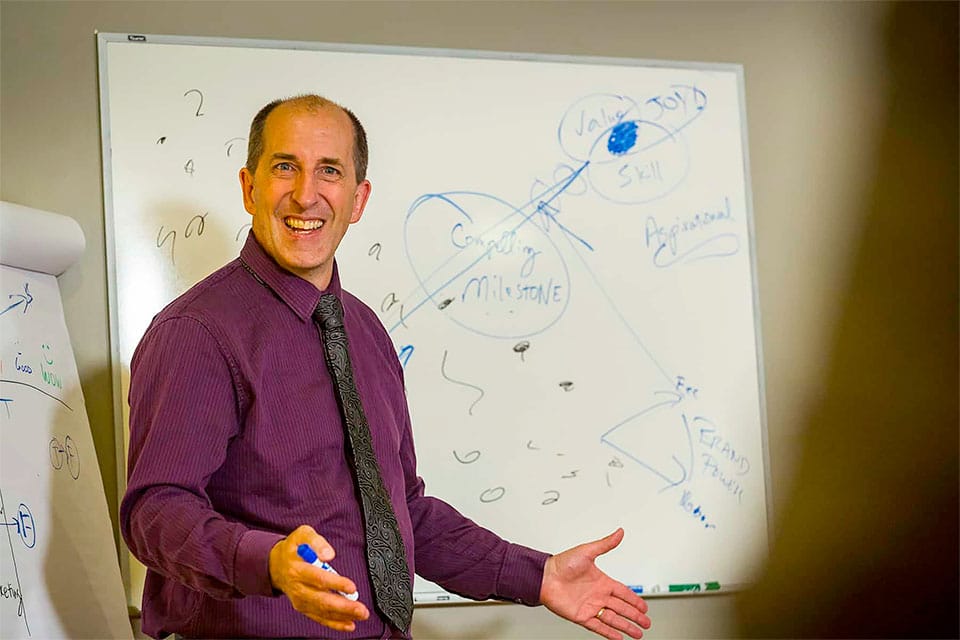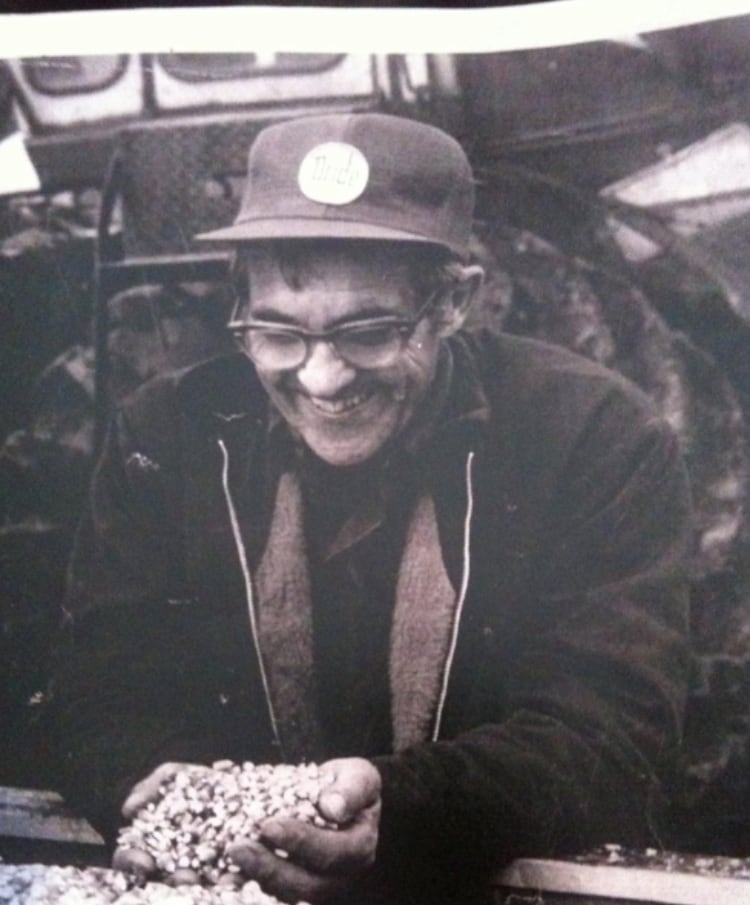The Lucky Farmer (Or How to Create Luck for Your Organization)

The best gift my father gave me was the secret of how to create luck. I grew up on a dairy farm and most of the time we were working without much time for “speechifying”. So, this secret was provided mostly through example.
However, on one particular Sunday afternoon my father and I were enjoying what was a rare treat for us. We were sitting in our living room watching a movie.
Another farmer dropped by and was amazed that we were not in the field working. He asked my father about the state of the machinery and about how our crops were doing.
My Dad said, “All the hay is in. The machinery is in good repair. The cows are milking just fine.”
The other farmer said, “Fritz, you are one lucky farmer!”
My father gave him one of his big smiles and laughed and said, “Yes I am. I am one lucky farmer!”
After the other farmer left, my father looked at me and said, “Our luck comes from measuring the production and costs of all the fields, machinery, and cows. You can’t make good decisions without data. Our luck comes from doing all the work no matter how hard or how long it takes, no matter if is drought or flood or perfect conditions. Our luck comes from discipline, work, and good decisions.”
He concluded with, “It is useful to get lucky with a sunny day at the right time. It isn’t luck that gets you ready to take advantage of it.”
As I’ve worked in and consulted with many organizations, I have of course found that my father was correct. Some business success does come from getting that “lucky sunny day at just the right time”. But much more important, is the fact that the “lucky” businesses were always the ones with the organizational speed, discipline, and skills to take advantage of their good fortune.
Here are four key methods to improve the speed, discipline, and skills of an organization.
- Start projects with speed to value as the core principle. There are ten or so crucial things that must be done to start projects in this way. When these things are not done, the projects start poorly and, like in any game of strategy, from a bad opening it becomes hard to win. Most organizations fail to implement many of those 10 elements even though they know better. The organizations that stand out have mastered starting projects with speed in mind.
- Lead with speed. Starting right is necessary, but the beginning is only a small percentage of any effort. The best organizations have some form of my “guidance system for speed”. The guidance system is used to keep everyone focused on the most important elements that drive the fastest path to the greatest value. The best organizations understand that everyone has to be focused on the core value of the project and they organize all the talent and work around achieving that value.
- Constantly remove sand from the gears. Casual bicycle riders never bother cleaning their gears. They will never go as fast or as far as the professional who always makes sure there is no grit in their well oiled gears.
For organizations, these gears are mundane things like how well meetings are run. Or the standard for how emails and general communications are conducted. Many organizations do not devote any attention to understanding how to make these elements a key driver of their speed to value. They overlook these details despite years of research on how to optimize these foundational interactions.
The best organizations master not just the art of meetings and communications. They understand that these connections are the drumbeat that drives the pace of everything. They invest in making them better.
- Create a leadership force. The leader that masters items 1,2, and 3 can greatly amplify their power by creating a leadership force. In working with over a thousand teams across many organizations, it has become clear to me that the speed of an organization is truly driven by a critical few. These few, often known as “opinion leaders”, are scattered at all levels of the organization. The organization that understands this provides those critical few with exceptional training, mentoring, and experiences. When this occurs, a small amount of effort makes the critical few faster to compel the entire organization to even greater speeds.
I remember that when one of my projects finished ahead of schedule with high quality, one of the other project leaders stopped by. After comparing the results of my project to his “unlucky” project, he got up to go and just shook his head, “Alan, you sure are lucky.”
I just laughed and remembered what my father said. I replied, “Yes I am. I am one lucky farmer!”

Written by Alan Willett. Here’s what you’ve missed?
World’s Best Universities.
World’s Best Fashion Schools.
World’s Best Medical Schools.
Bring the best of the CEOWORLD magazine's global journalism to audiences in the United States and around the world. - Add CEOWORLD magazine to your Google News feed.
Follow CEOWORLD magazine headlines on: Google News, LinkedIn, Twitter, and Facebook.
Copyright 2025 The CEOWORLD magazine. All rights reserved. This material (and any extract from it) must not be copied, redistributed or placed on any website, without CEOWORLD magazine' prior written consent. For media queries, please contact: info@ceoworld.biz








